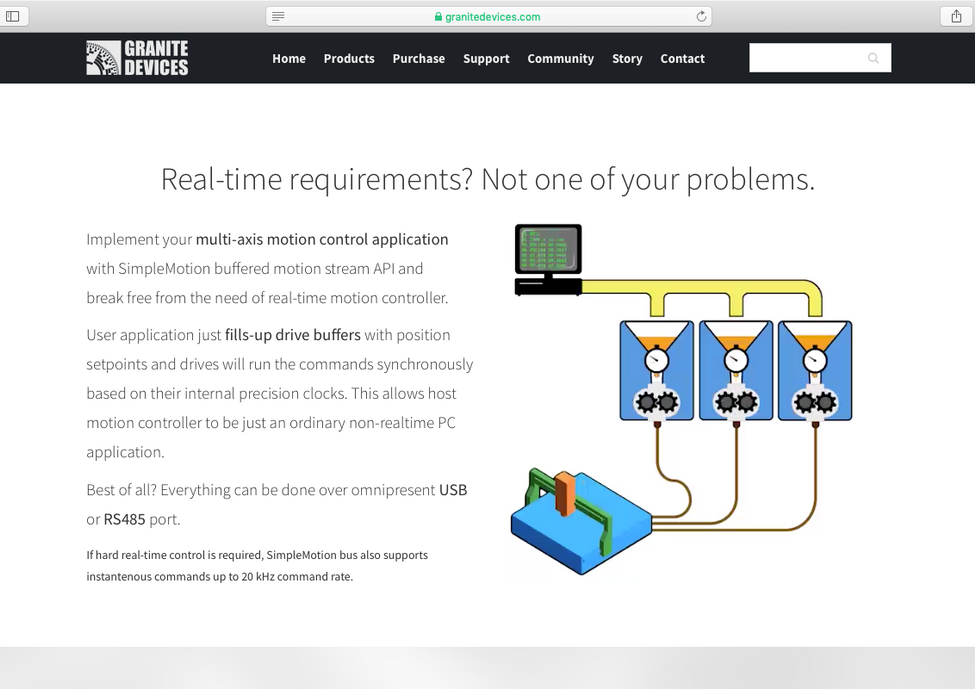
SERVO DRIVES
-
I need to work with high-voltage motors. Maybe they run at a lower voltage ok? I need something to test them with.
-
I have very limited information on each motor, next to nothing in fact.
-
I need to work with AC motors, not DC.
-
I need to utilise the Resolvers or somehow convert their signals to something easier to deal with.
-
I need to control six motors at once (eventually) in a coordinated fashion.
-
I have very limited software knowledge so need something that I can use 'out of the box', or with very little setup.
-
I have a limited budget as this is a personal project.
SERVO DRIVES
RESEARCH
Sourcing suitable servo drives for this project has proved to be one one the most time consuming parts. There are plenty available, but many are for specific motors, run on low voltages (under 60v), don’t support resolvers and are typically very expensive. I’ve found two which are suitable for this project; the STMBL and the Argon.
STMBL - OPEN SOURCE
Pros:
An open-source project that has a really good reputation, is flexible, fairly reasonably priced, is used in all sorts of machines, it supports high voltages, it has direct Resolver support, it has a very active community, and it will develop further in the future for sure.
Cons:
You can't buy them pre-built. Some parts for it are now obsolete, It's been designed by two VERY clever chaps who are busy with their own projects so there’s limited support available. There is in theory a new version coming, but I'm not sure when.

ARGON - GRANITE DEVICES
Pros:
A well developed system with proven reliability, has good setup software, comes cased, takes AC or DC directly and supports breaking resistors, has online support, supports resolvers and has some open-source features.
Cons:
It’s fairly old technology and is more expensive than the STMBL.


INITIAL TESTS
I've purchased one Argon drive for testing. The online documentation for it is pretty comprehensive, plus they supply their own setup software called Granity. This makes things a lot easier than other devices I've used in the past. It allows you to set the tuning parameters for the servo, the maximum current available, the type of control signal needed (PWM, Analogue, RS485, Step/Dir) as well as limit switch settings, encoder type, travel ratios etc. as well as having a nice monitoring function showing the state of the drive.





